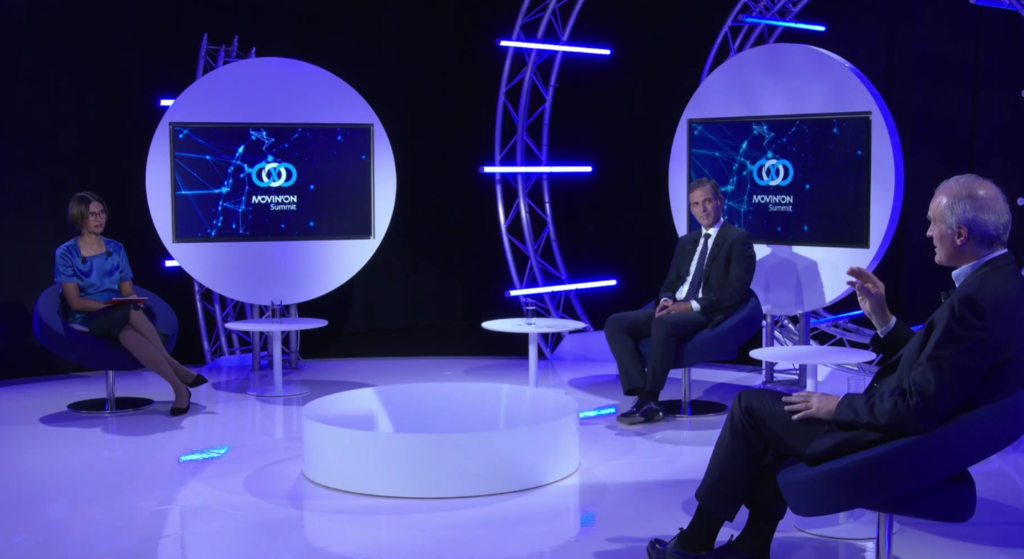Debate over progress vs. perfection in journey to net-zero emissions
The journey to achieving net-zero transportation emissions by 2050 has begun, but panelists during the 2021 Movin’On Summit disagree whether the journey needs to rely on gradual progress or massive leaps.
“We’re at the end of the story now. The climate has warmed dangerously. It’s going to get out of control, absolutely, unless we put on the brakes right now,” said Jeffrey Sachs, director of the center for sustainable development at Columbia University and president of the UN Sustainable Development Solutions Network.

“The point is to apply what we know, to apply it rapidly, and to get the net zero everywhere. And that’s also to say no to the old incumbent fossil fuel.”
But he has seen several gains in a series of measure that involve major oil producers.
“The laggers, which are the oil companies, have been prompted to reality whether they like it or not,” he said. “[The] Supreme Court told Shell, ‘You must cut your emissions.’ ExxonMobil management lost a major vote when investors that are in favor of decarbonization put people onto the Exxon board. A majority of investors called on Chevron for a plan to cut emissions.”
While there are now effective ways to move energy generated by wind, solar, hydro, and other zero-carbon sources, the improvements have been slowed by the political power of the fossil fuel sector, he argued.
Rodolphe Saade, CEO of CMA CGM – a French container transportation and shipping company – agreed it’s important to act quickly, but stressed that reality requires a more progressive approach.
“We have learned two lessons from the Covid crisis. The first one is the vulnerability of our society and our models, and the second is our ability to change,” he said.
“The time for promises is over and we feel that it is important that we take serious actions to try to remedy the situation we are being faced with.”
His business, for example, is moving forward with liquefied natural gas (LNG).
“It might not be the ideal solution, but it is a solution that is available today, that allows us to reduce our CO2 emissions by around 20%, eliminates completely sulfur and fine particles,” Saade said.
The business expects to be running 42 vessels on LNG in the coming months.
“It’s always easy to criticize what others are doing. But what is important, especially in view of the current situation, is we need to take action,” he said.
“So, LNG is one option, but also biomethane, a renewable energy resulting from agriculture waste. It allows us to reduce our CO2 emissions by 70 to 90%. And we also have biofuel, which is produced from recycled cooking oil and allows us to reduce our emissions by about 70%.”
Sachs questions whether interim steps are the right approach.
“Solutions that are called ‘interim solutions’ are often not interim solutions at all. They are just getting [us] deeper again into trouble,” he said.
Florent Menegaux, CEO of the Michelin Group, stressed that it’s time to act now, but noted the transition to net-zero emissions will be made in steps.
“It is more important to move into concrete steps right now than waiting for the perfect solution that may come in five, 10 or 20 years from now.”
Added Julie Sweet, CEO of Accenture: “There seem to be absolute agreement on where we need to land, disagreement on how we need to execute.
“I would really focus on progress over perfection so that we do in fact achieve zero [emissions] by 2050. “
Have your say
This is a moderated forum. Comments will no longer be published unless they are accompanied by a first and last name and a verifiable email address. (Today's Trucking will not publish or share the email address.) Profane language and content deemed to be libelous, racist, or threatening in nature will not be published under any circumstances.